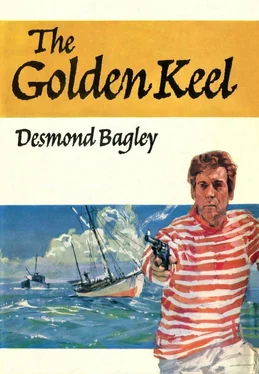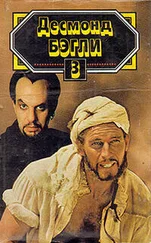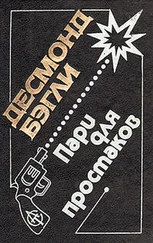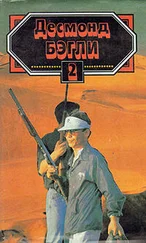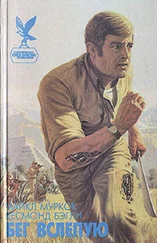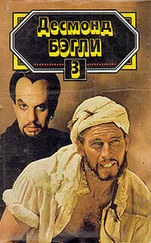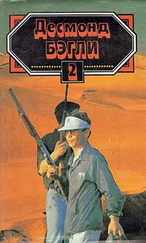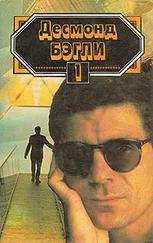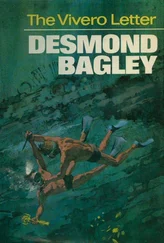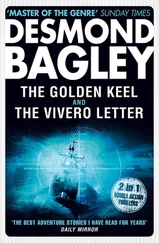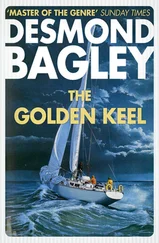I listened and there was a strange noise — but it wasn’t our engine. I throttled back and heard the puttering of an outboard motor quite close to starboard.
‘Get below quickly,’ I said, and called to Coertze in a low voice, ‘We’ve got visitors.’
He came aft swiftly. I pointed to starboard and, in the faint light of the newly risen moon, we could see the white feather of a bow wave coming closer. A voice came across the water. ‘Monsieur Englishman, can you hear me?’
‘It’s Morlaix,’ I said, and raised my voice. ‘Yes, I can hear you.’
‘We are coming aboard,’ he shouted. ‘It is useless to resist.’
‘You stay clear,’ I called. ‘Haven’t you had enough?’
Coertze got up with a grunt and went forward. I pulled Torloni’s gun from my pocket and cocked it.
‘There are only four of you,’ shouted Morlaix. ‘And many more of us.’
The bow wave of his boat was suddenly much closer and I could see the boat more clearly. It was full of men. Then it was alongside and, as it came close enough to bump gunwales, Morlaix jumped to the deck of Sanford. He was only four feet away from me so I shot him in the leg and he gave a shout and fell overboard.
Simultaneously Coertze rose, lifting in one hand the struggling figure of Torloni. ‘Take this rubbish,’ he shouted and hurled Torloni at the rush of men coming on deck. Torloni wailed and the flying body bowled them over and they fell back into their boat.
I took advantage of the confusion by suddenly bearing to port and the gap between the boats widened rapidly. Their boat seemed to be out of control — I imagine that the steersman had been knocked down.
They didn’t bother us again. We could hear them shouting in the distance as they fished Morlaix from the water, but they made no further attack. They had no stomach for guns.
Our wake broadened in the moonlight as we headed for the open sea. We had a deadline to meet in Tangier and time was short.
We had fair winds at first and Sanford made good time. As I had suspected, the greater concentration of weight in the keel made her crotchety. In a following sea she rolled abominably, going through a complete cycle in two minutes. With the wind on the quarter, usually Sanford ’s best point of sailing, every leeward roll was followed by a lurch in the opposite direction and her mast described wide arcs against the sky.
There was nothing to be done about it so it had to be suffered. The only cure was to have the ballast spread out more and that was the one thing we couldn’t do. The violent motion affected Coertze most of all; he wasn’t a good sailor at the best of times and the wound in his shoulder didn’t help.
With the coming of dawn after that momentous and violent night we lay hove-to just out of sight of land and set to work on the running rigging. It didn’t take long — Palmerini had done more in that direction than I’d expected — and soon we were on our way under sail. It was then that the crankiness of Sanford made itself evident, and I experimented for a while to see what I could do, but the cure was beyond me so I stopped wasting time and we pressed on.
We soon fell into our normal watchkeeping routine, modified by the presence of Francesca, who took over the cooking from Coertze. During small boat voyages one sees very little of the other members of the crew apart from the times when the watch is changed, but Walker was keeping more to himself than ever. Sometimes I caught him watching me and he would start and roll his eyes like a frightened horse and look away quickly. He was obviously terrified that I would tell Coertze about the cigarette case. I had no such intention — I needed Walker to help run Sanford — but I didn’t tell him so. Let him sweat, I thought callously.
Coertze’s shoulder was not so bad; it was a clean flesh wound and Francesca kept it well tended. I insisted that he sleep in the quarter berth where the motion was least violent, and this led to a general post. I moved to the port pilot berth in the main cabin while Francesca had the starboard pilot berth. She rigged up a sailcloth curtain in front of it to give her a modicum of privacy.
This meant that Walker was banished to the forecastle to sleep on the hitherto unused pipe berth. This was intended for a guest in port and not for use at sea; it was uncomfortable and right in the bows where the motion is most felt. Serve him damn’ well right, I thought uncharitably. But it meant that we saw even less of him.
We made good time for the first five days, logging over a hundred miles a day crossing the Ligurian Sea. Every day I shot the sun and contentedly admired the course line on the chart as it stretched even farther towards the Balearics. I derived great pleasure from teaching Francesca how to handle Sanford ; she was an apt pupil and made no more than the usual beginner’s mistakes.
I observed with some amusement that Coertze seemed to have lost his antipathy towards her. He was a changed man, not as prickly as before. The gold was safe under his feet and I think the fight in the boatyard had worked some of the violence out of him. At any rate, he and Francesca got on well together at last, and had long conversations about South Africa.
Once she asked him what he was going to do with his share of the spoil. He smiled. ‘I’m going to buy a plaas,’ he said complacently.
‘A what?’
‘A farm,’ I translated. ‘All Afrikaners are farmers at heart; they even call themselves farmers — boers — at least they used to.’
I think that those first five days after leaving Italy were the best sea days of the whole voyage. We never had better days before and we certainly didn’t have any afterwards.
On the evening of the fifth day the wind dropped and the next day it kept fluctuating as though it didn’t know what to do next. The strength varied between force three and dead calm and we had a lot of sail work to do. That day we only logged seventy miles.
At dawn the next day there was a dead calm. The sea was slick and oily and coming in long even swells. Our tempers tended to fray during the afternoon when there was nothing to do but watch the mast making lazy circles against the sky, while the precious hours passed and we made no way towards Tangier. I got tired of hearing the squeak of the boom in the gooseneck so I put up the crutch and we lashed down the boom. Then I went below to do some figuring at the chart table.
We had logged twenty miles, noon to noon, and at that rate we would reach Tangier about three months too late. I checked the fuel tank and found we had fifteen gallons left — that would take us 150 miles in thirty hours at our most economical speed. It would be better than sitting still and listening to the halyards slatting against the mast, so I started the engine and we were on our way again.
I chafed at the use of fuel — it was something we might need in an emergency — but this was an emergency, anyway, so I might as well use it; it was six of one and a half dozen of the other. We ploughed through the still sea at a steady five knots and I laid a course to the south of the Balearics, running in close to Majorca. If for some reason we had to put into port I wanted a port to be handy, and Palma was the nearest.
All that night and all the next morning we ran under power. There was no wind nor was there any sign that there was ever going to be any wind ever again. The sky was an immaculate blue echoing the waveless sea and I felt like hell. With no wind a sailing boat is helpless, and what would we do when the fuel ran out?
Читать дальше
Конец ознакомительного отрывка
Купить книгу
